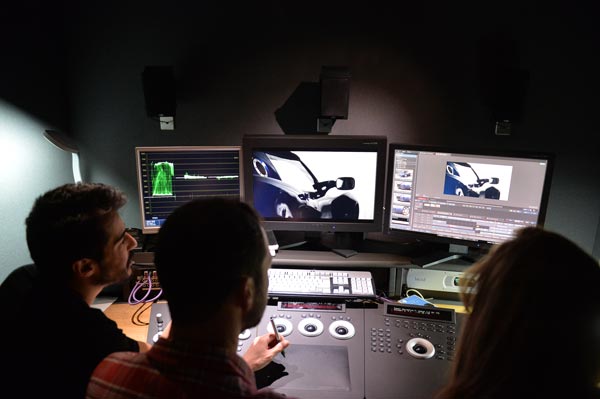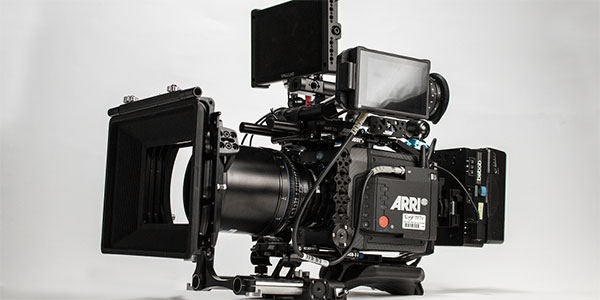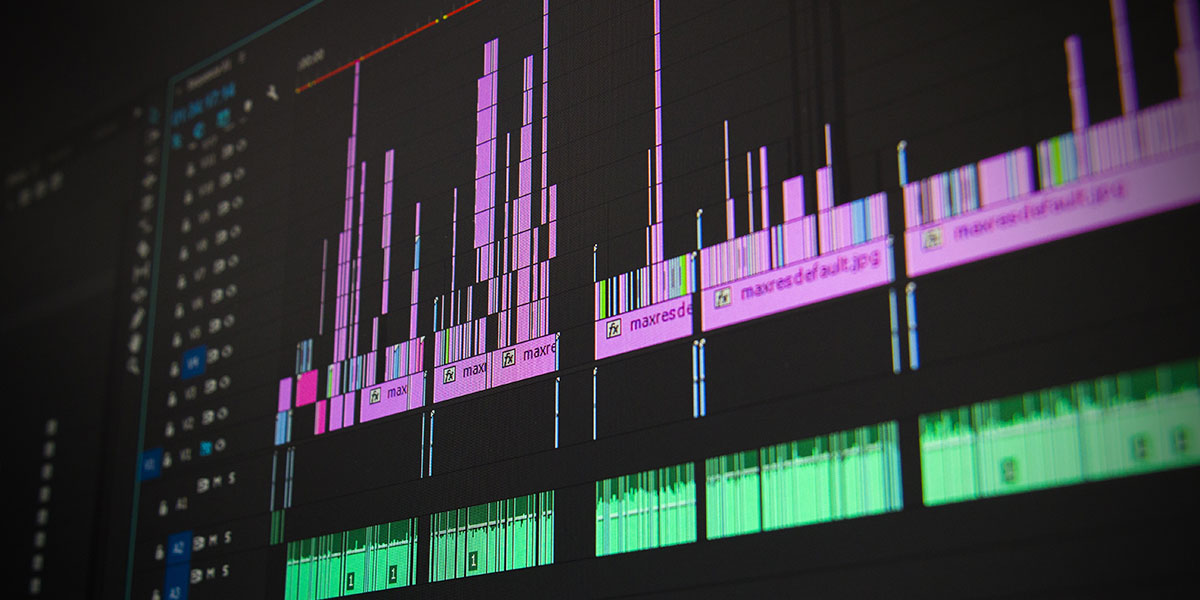
MA Editing for Film and Television Production
Study with us and gain the high-level editing skills you need to compete in a diverse global film marketplace.
Year of entry: 2026 (September)
Combine creativity with academic theory. Develop your knowledge and practice of post-production techniques in our industry-standard facilities.
At York, you'll gain valuable hands-on experience in our purpose-built £35m arts and media complex, featuring HD TV studios, our industry-standard digital cinema, three post production labs and more. You'll develop your creative and technical skills in a vibrant and supportive environment with academics active in the industry.
Through your studies, you'll cultivate a high-level of craft and creativity skills, combined with critical thought and collaboration. Put academic theory into practice by editing short films and producing fiction and documentary stories.
You'll graduate with sound knowledge of editing systems and skills that will translate readily into any work context. MA students go on to work in film, television and online content or academic research.
Accreditation



This course is industry recognised by ScreenSkills, the industry-led skills body for the UK's screen-based industries, and carries the ScreenSkills Select quality-mark which indicates courses best suited to prepare students for a career in the screen industries. The accreditation means that our students learn professional skills on courses approved and supported by the industry; and it gives access to various schemes, eg internships and traineeships with the BBC, ITV and other broadcasters, as well as independent production companies.
We are part of the BAFTA albert Education Partnership. albert is the leading screen industry organisation for environmental sustainability. Through this partnership students are introduced to the sustainability knowledge they'll need when joining the production workforce.
We work in partnership with the Mark Milsome Foundation to support the highest standards of safety in film and television production. Through this partnership, all students complete the Mark Milsome Foundation Film and TV Online Safety Passport, ensuring they develop health and safety awareness before entering any educational or professional production environment.
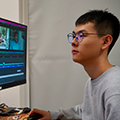
I attended the Advanced Editing module with Susan Brand where I learnt professional editing techniques in depth. We covered technical and creative aspects of the editor’s job and troubleshooting tools to solve story problems in the edit. This module was very exciting from start to finish.
Course content
Our MA in Film and Television with Editing offers an exciting programme of study aimed at producing editors who are engaged, active creatives with a diverse global outlook. Your studies will cover the theory and practice of storytelling in the edit, investigating structure, emotional journey, performance, point of view, sound design in the edit and much more.
We foster teamwork and a holistic understanding of the filmmaking process from start to finish. You'll collaborate with MA students from other disciplines editing documentary and fiction films. You'll edit on leading industry software, including Avid Media Composer.
As a student editor, you'll attend weekly film and TV screenings and talks or masterclasses with opportunities for discussion with leading film and television professionals. These events will give you a fully rounded understanding of film and television in Europe and globally, from its origins to today, and into the future.
Modules
Core modules
You'll study five core modules, including your own individual project and dissertation over the Summer period.
Editing I and II provide a solid training from basic to advanced on Avid Media Composer. All software training is done using materials from professional documentary and fiction films. Other core modules are grading with DaVinci Resolve, two group project films where you'll edit collaborating with fellow MA students and your own individual project and final dissertation.
Option modules
In addition to your editing specialism, you'll be able to choose from an exciting range of optional modules, all taught by our industry experienced lecturers. Examples may include:
Semester 1
- Directing for Film & Television 1
- Digital Cinematography I
- Audio Production & Postproduction Workflows
- Feminism on the Screen
Semester 2
- Business of Production and Postproduction
- Spatial Audio & Surround Sound
- Sound Design with Sound Effects
Some option module combinations may not be possible. The options available to you will be confirmed after you begin your course.
Our modules may change to reflect the latest academic thinking and expertise of our staff, and in line with Department/School academic planning.
Final project
The individual project is your chance to take a deep dive into your editing specialism on a project of your own choosing. This can include making your own film and writing a report, or writing a research-based dissertation.
You'll have flexibility in the type of individual project you submit. You could submit:
- a film project alongside a 7000 word reflective essay
- or an 8000 word research-based dissertation project
Learning outcomes
Every course at York is built on a distinctive set of learning outcomes. These will give you a clear understanding of what you will be able to accomplish at the end of the course and help you explain what you can offer employers. Our academics identify the knowledge, skills, and experiences you'll need upon graduation and then design the course to get you there.
Learning outcomes for this course
- Carry out film and television postproduction to a professional standard by employing their in-depth understanding of the theoretical basis, underlying technologies and practical skills central to editing and picture postproduction.
- Work collaboratively and to good effect with others - as leader or team member - in the production and delivery of creative projects that conform to current industry practices and standards.
- Analyse, critically evaluate and reflect upon their practice, using a developed understanding of professional production values and aesthetics.
- Organise themselves to deliver creative work that meets commercial objectives by exercising self-discipline and a capacity to work independently to challenging deadlines.
- Solve problems creatively and with intellectual rigour through applying formal investigative research skills and an ability to exercise critical judgement.
- Communicate clearly and persuasively to professional, academic and lay audiences using appropriate written, oral and other media.
- Devise and execute original technical projects involving editing and postproduction.
Fees and funding
Annual tuition fees for 2026/27
| Study mode | UK (home) | International and EU |
|---|---|---|
| Full-time (1 year) | £13,900 | £32,900 |
Fees information
UK (home) or international fees? The level of fee that you will be asked to pay depends on whether you're classed as a UK (home) or international student. Check your fee status.
Find out more information about tuition fees and how to pay them.
Funding information
Discover your funding options to help with tuition fees and living costs.
We'll confirm more funding opportunities for students joining us in 2026/27 throughout the year.
If you've successfully completed an undergraduate degree at York you could be eligible for a 10% Masters fee discount.
Funding opportunities
Chevening Scholarships
We are pleased to work with Chevening Scholars to offer funding for our Masters programmes. Chevening Scholarships provide one year of fully-funded postgraduate study in the UK for international (including EU) students. The scholarships are open to early and mid-career professionals who have the potential to become future leaders.
School scholarship information
- Scholarships, awards and bursaries for our students
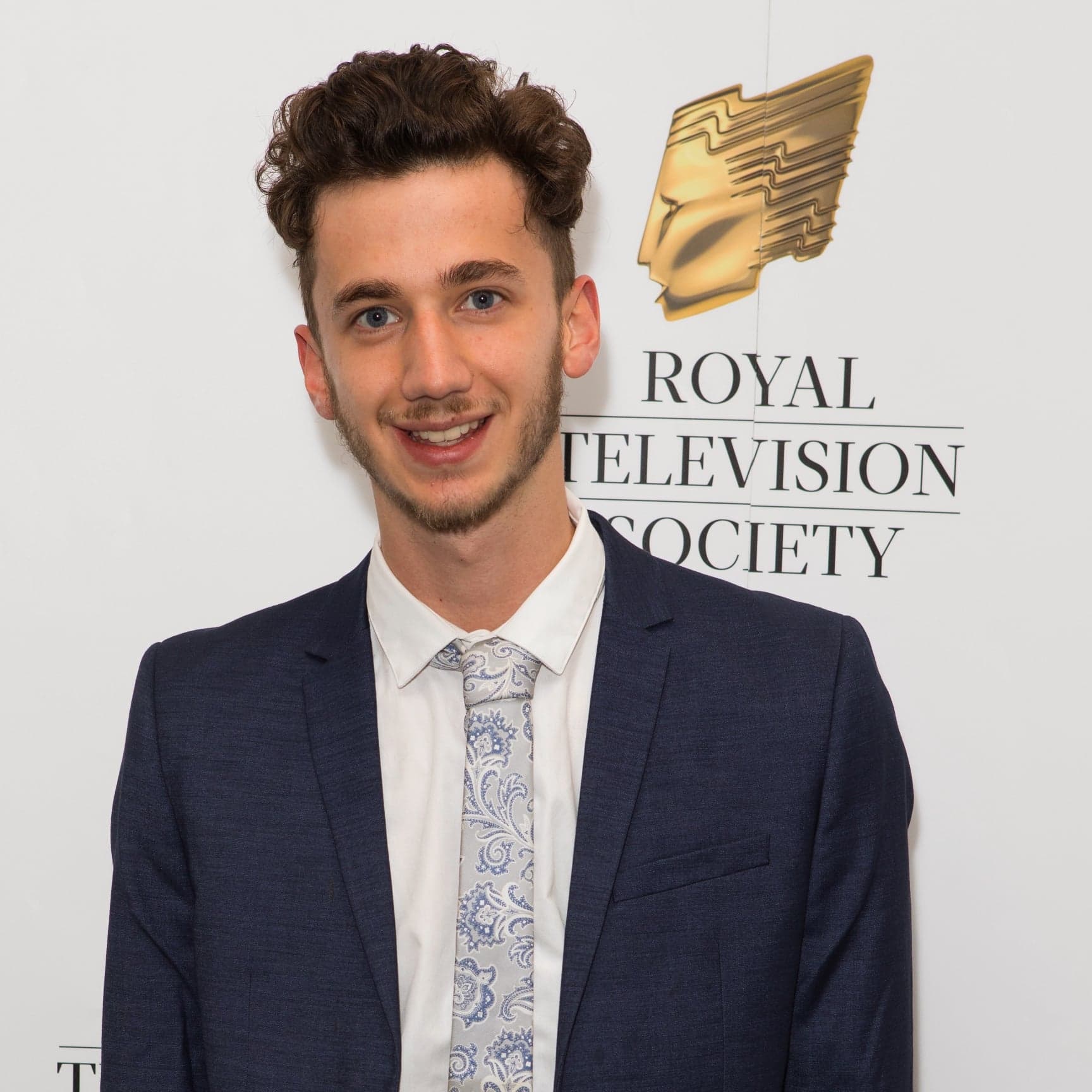
One of the reasons that makes studying at York so compelling is the industry-standard equipment and facilities. From RED Cameras and Steadicams to sound mixing rooms and Foley suites: York has everything you need to make the best content possible.
Lee, BA Film and Television
Teaching and assessment
You’ll work with world‐leading academics who’ll challenge you to think independently and excel in all that you do. Our approach to teaching will provide you with the knowledge, opportunities, and support you need to grow and succeed in a global workplace.
Teaching format
The course involves a range of different teaching styles. Most modules will include lectures to give you a fundamental understanding of the subject and then lead on to practical work. The practical work will primarily involve lab sessions where you can become familiar with industry techniques and equipment.
Sessions involving guests from the film and television industry will be part of your studies. You'll also have the opportunity to attend events such as talks, productions and festivals.
You'll be assigned a personal supervisor for the duration of the course. They are there to give advice on academic matters as well as other areas of University life.
Facilities
We have excellent purpose-built facilities and equipment available to you, including:
- Post-production picture suites - We have several labs for picture post-production and individual cutting rooms featuring Media Composer, Avid Symphony, Premiere Pro and DaVinci Resolve.
- Post-production sound suites – We have individual rooms for audio finishing, two mixing theatres and a Foley pit. Students can work in stereo, 7.1 and surround sound. Software includes Pro Tools and Dolby Atmos.
- Production equipment - including camera systems from ARRI, RED and Sony.
Discover our facilities.
Teaching location
You'll be based in the School of Arts and Creative Technologies on Campus East.
About our campus
Our beautiful green campus offers a student-friendly setting in which to live and study, within easy reach of the action in the city centre. It's easy to get around campus - everything is within walking or pedalling distance, or you can always use the fast and frequent bus service.
Assessment and feedback
You'll be assessed in a variety of ways, including:
- In-class tests
- Group projects
- Presentations
- In-class pitch sessions
- Essays and reflective reports
- Practical projects and reports
Careers and skills
You'll be taught by academics who are active in the industry, so you'll be kept up to date with the latest professional practices and skills. You'll also learn from the real-world experience of leaders in the field through our masterclasses, which are designed to enhance your employability. Besides discipline-specific skills in postproduction, you'll graduate with enhanced skills in written and oral presentation, project management and a greater understanding of career structures in the film and television industry.
Many of our graduates go on to work in the industry, with recent graduates working for companies such as Oriental DreamWorks, Bloomberg LP and Double Negative.
Career opportunities
- Feature film editor
- Television drama editor
- Television documentary editor
- Production manager
- Production coordinator
- Digital marketing manager
- Higher education research and teaching
Transferable skills
- Collaborative working
- Problem-solving
- Investigative research
- Time management and organisation
- Technical analysis
- Critical evaluation
- Reflective learning
Entry requirements
| Qualification | Typical offer |
|---|---|
| Undergraduate degree | 2:2 or equivalent, and evidence of professional experience or a commitment to film making. |
| Other international qualifications | Equivalent qualifications from your country |
English language
If English isn't your first language you may need to provide evidence of your English language ability. We accept the following qualifications:
| Qualification | Minimum requirement |
|---|---|
| IELTS (Academic and Indicator) | 6.5, minimum 6.0 in each component |
| Cambridge CEFR | B2 First: 176, with 169 in each component |
| Oxford ELLT | 7, minimum of 6 in each component |
| Oxford Test of English Advanced | 136, minimum 126 in each component |
| Duolingo | 120, minimum 105 in all other components |
| LanguageCert SELT | B2 with 33/50 in each component |
| LanguageCert Academic | 70 with a minimum of 65 in each component |
| Kaplan Test of English Language | 478-509, with 444-477 in all other components |
| Skills for English | B2: Merit overall, with Pass with Merit in each component |
| PTE Academic | 61, minimum 55 in each component |
| TOEFL | 87, minimum of 21 in each component |
| Trinity ISE III | Merit in all requirements |
For more information see our postgraduate English language requirements.
If you haven't met our English language requirements
You may be eligible for one of our pre-sessional English language courses. These courses will provide you with the level of English needed to meet the conditions of your offer.
The length of course you need to take depends on your current English language test scores and how much you need to improve to reach our English language requirements.
After you've accepted your offer to study at York, we'll confirm which pre-sessional course you should apply to via You@York.
Next steps
Contact us
Get in touch if you have any questions
Discover York





